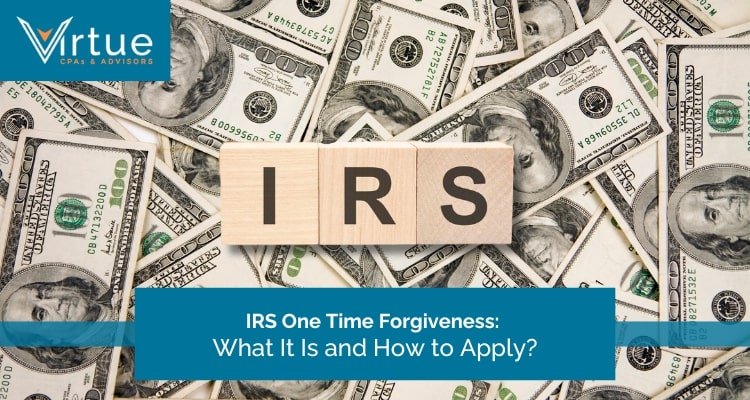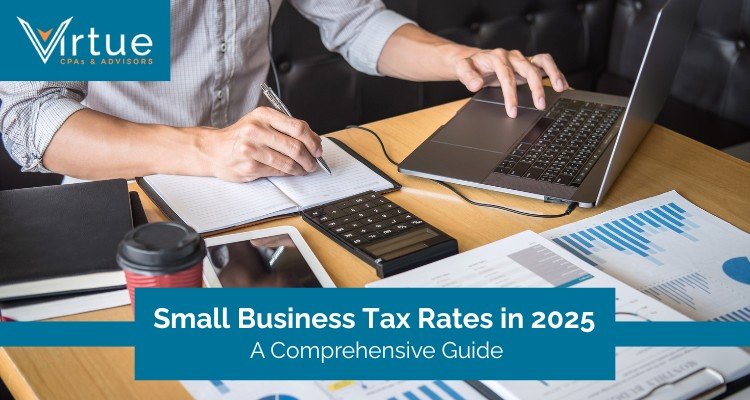Introduction
If you can't pay your taxes on time, the penalties and interest can quickly add up, leading you toward a debt cycle. Many taxpayers face IRS penalties each year for various reasons. Mainly for failure to file a return on time, failure to pay after filing, and failure to pay the assessed amount due from the previous year.
However, options like IRS forgiveness can help reduce or eliminate penalties based on your situation. In this blog, we discuss what IRS One Time Forgiveness is and how to apply for one-time forgiveness. We have provided detailed guidance on IRS one-time forgiveness.
What is IRS one-time forgiveness?
The IRS has a program called ‘one-time forgiveness,’ or ‘penalty abatement,’ for people who haven't filed their taxes on time or paid them in full. If you're always late with taxes or have many unpaid penalties, this program isn't for you.
How can you get IRS One-Time Forgiveness?
There are three ways to apply one-time forgiveness.
1. First-time penalty abatement
The IRS offers Penalty Relief due to First Time Abate to taxpayers who have a valid reason for not filing or paying on time. The program for reducing penalties can decrease or remove a penalty, if you meet these requirements:
- You have filed all tax returns.
- You have settled the debt completely or arranged a payment plan with the IRS.
- You have not faced penalties in the last three years.
The penalty for failure to pay will keep increasing until the tax is fully paid, so it's best to settle your debt as soon as possible.
2. Reasonable Cause
If you do not qualify for a decrease in your initial penalty, you can request the IRS to remove your fees for a reasonable cause.
Acceptable reasons could be:
- Fire, setback, or catastrophic event.
- Unable to obtain records.
- Death, serious illness, disability, or significant lack of the taxpayer or a close family member.
However, to get this benefit of decreasing fees, you need to provide documentation to support your case, such as medical records, court documents, or a letter from your doctor confirming your illness.
For instance, if a family member's death prevented you from filing on time, you would need to submit a copy of the death certificate.
If a fire destroyed your business and financial records, you must show the date of the fire and any relevant subsequent events. Also, you will need to provide a police or fire department report and any correspondence with authorities regarding your tax documents.
Therefore, you should always keep safe records by the IRS, other foundations, and authorities, regardless of the situation.
3. Statutory Exceptions
If you got the wrong advice from the IRS, you could ask for an exception. Fill out Form 843 to request a refund and penalty relief. Make sure to include details about the advice you received, the taxes and penalties paid, and any supporting documents.
How to apply for IRS one-time forgiveness?
It's a good idea to consult with a tax professional before seeking an exemption to increase your chances of success. Tax experts have experience with successful penalty reduction requests and can determine if you qualify for tax relief. They can assist you with gathering information, completing forms, and communicating with the IRS.
Let's understand the key methods for the IRS to reduce tax penalties.
3 Methods to ask the IRS to reduce penalties
1. Write a letter to the IRS requesting the removal of penalties. Provide supporting evidence for your request. Send the letter to the address stated on the IRS's notice of tax amount due.
2. To request a reduction, you or your tax advisor must complete IRS Form 843 (Claim for Refund and Request for Abatement). You will need to provide personal information such as address and Social Security Number (SSN), as well as details about your specific penalty and the reason for requesting a reduction. This form should be submitted along with your written request.
3. Sometimes, it might be easier to ask for a penalty reduction by speaking with an IRS representative on the phone or in person at a Taxpayer Assistance Center. They could request any necessary documents from you.
Is there an IRS one-time tax forgiveness or not?
The IRS might review your appeal for penalty avoidance and penalty assistance if you have been careful with your taxes for a long time but missed the deadline for filing or paying. The IRS also offers small business owners' various ways to pay off and eventually clear their outstanding balance through its Fresh Start program. However, not all requests for tax debt forgiveness will be approved because the qualifications are strict.
Will the IRS forgive penalties?
The IRS can forgive penalties, if it is your first-time penalty, there is reasonable cause described in the rules, or you had a statutory exception. Otherwise, you need to pay the penalties and there will be no relief from the IRS.
Will the IRS forgive penalties and interest?
Interest continues to accumulate even if penalties are forgiven. Your debt could grow significantly due to monthly penalty increases and accrued interest. The IRS starts charging interest on penalties immediately and will keep doing so until your account is settled. It's best to resolve any tax return issues promptly to avoid accruing more interest.
The IRS charges interest on penalties. The interest will continue to accrue until the balance is paid in full. If penalties are reduced or removed, the related interest will be automatically reduced or removed.
Will the IRS forgive late filing penalties?
The IRS may consider removing or reducing certain penalties if the taxpayer acted in good faith and can demonstrate reasonable cause for not being able to meet their tax obligations. However, it is important to note that by law, the IRS cannot reduce or remove interest unless the penalty is also reduced or removed.
What are the penalties for late filing of tax returns?
Late filing penalties can increase by 5% of the amount owed for each month (or part of a month) that the filing is late. The minimum penalty for filing more than 60 days (about 2 months) late is $100 or 100% of the tax due, whichever is lower.
How can Virtue CPAs help you?
At Virtue CPAs, we provide comprehensive service of personal tax and business tax tailored to your requirements. Our qualified team is experienced and up to date with tax laws and the ever-changing compliance of the IRS.
Contact us today and get accurate solutions.







